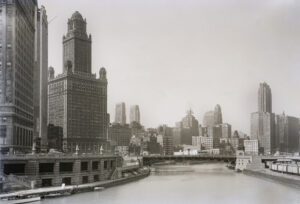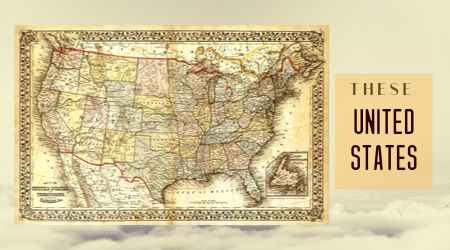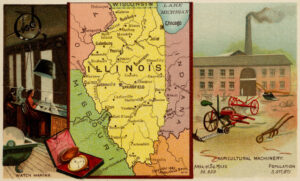Illinois: The Land of the Illini
Illini is the Algonquin word meaning men or warriors – and the French used that word to name the area.
By: Kelli Ballard | December 24, 2019 | 427 Words

(Photo by Michael Reaves/Getty Images)
Illinois became the 21st state on Dec. 3, 1818. Long before the Europeans came to the area, the land was inhabited by ancient cultures, including the Paleo-Indians, the Woodland people, and the Mississippian peoples. Illinois got its name from the French word meaning Illini, or Land of Illini. Illini is an Algonquin word that means men or warriors.

(Original Caption) Chicago, IL.. Skyline, Chicago River from Michigan Avenue Bridge.
The first Europeans to visit the area were French explorers Louis Jolliet and Jacques Marquette in 1673. At first, they lived in peace with the tribes, wanting only to work with them on trapping and trading. However, as more people moved into the area, they began fighting over the land. The tribes were forced to move further west. The British gained control over the territory after winning the French and Indian War in 1763. Just twenty years later, after the Revolutionary War, the land became part of the United States.
Chicago was founded in 1833, and the final Indian treaty for Illinois, the Treaty of Chicago, was finished with the Potawatomi, Chippewa, and Ottawa tribes.
The Great Chicago Fire
One of the many unsolved mysteries is what or who exactly started the fire that devastated the area. Some say it was a cow, others a person, and some even suggest a meteorite is responsible. In 1871, most of the buildings were made out of wood, making it prime for fire hazards.
 Legend has it that on the night of Oct. 8, in a barn located on the property of Patrick and Catherine O’Leary, the fire started after a cow knocked over a lantern. The fire burned continuously, spreading through the town until a much-needed rain helped firefighting efforts two days later on Oct. 10. The fire destroyed much, taking an estimated 300 human lives and leaving 100,000 others homeless. More than 17,000 structures were destroyed, and damages were estimated to be approximately $200 million.
Legend has it that on the night of Oct. 8, in a barn located on the property of Patrick and Catherine O’Leary, the fire started after a cow knocked over a lantern. The fire burned continuously, spreading through the town until a much-needed rain helped firefighting efforts two days later on Oct. 10. The fire destroyed much, taking an estimated 300 human lives and leaving 100,000 others homeless. More than 17,000 structures were destroyed, and damages were estimated to be approximately $200 million.

(Photo by Buyenlarge/Getty Images)
One month after the fire, Joseph Medill was elected mayor. It is suggested he might have won after promising stricter building and fire codes. Another factor might be that most of the city’s voting records were destroyed in the fire, so there was really no way to tell if people were voting multiple times.
In any case, no one may ever know the true cause of the devastating fire. Catherine O’Leary vehemently denied the allegation that their cow kicked over a lantern. Chicago, however, quickly started booming with all of the efforts to rebuild.
















